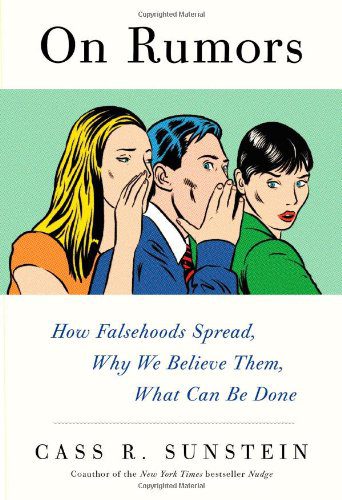“If you want people to move away from their prior convictions, and to correct a false rumor, it is best to present them not with the opinions of their usual adversaries, whom they can dismiss, but instead with the views of people with whom they closely identify.”
In “On Rumors: How Falsehoods Spread, Why We Believe Them, What Can Be Done,” American legal scholar Cass Sunstein writes about the ever-pervasive problem – rumors.
Rumors often arise and gain traction because they fit with, and support, the prior convictions of those who accept them. Some people and some groups are predisposed to accept certain rumors because those rumors are compatible with their self-interest, or with what they think they know to be true. Some people are strongly motivated to accept certain rumors because it pleases them to do so.
The Problem
Rumors are nearly as old as human history, but with the rise of the Internet, they have become ubiquitous. In fact we are now awash in them. False rumors are especially troublesome; they impose real damage on individuals and institutions, and they often resist correction. They can threaten careers, relationships, policies, public officials, democracy, and sometimes even peace itself.
